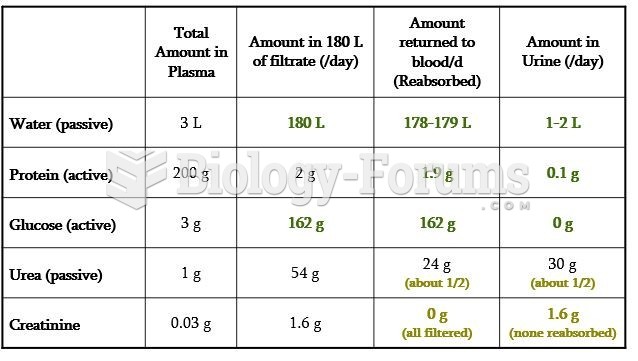|
|
|
Approximately 25% of all reported medication errors result from some kind of name confusion.
It is believed that the Incas used anesthesia. Evidence supports the theory that shamans chewed cocoa leaves and drilled holes into the heads of patients (letting evil spirits escape), spitting into the wounds they made. The mixture of cocaine, saliva, and resin numbed the site enough to allow hours of drilling.
Illicit drug use costs the United States approximately $181 billion every year.
Egg cells are about the size of a grain of sand. They are formed inside of a female's ovaries before she is even born.
When intravenous medications are involved in adverse drug events, their harmful effects may occur more rapidly, and be more severe than errors with oral medications. This is due to the direct administration into the bloodstream.






